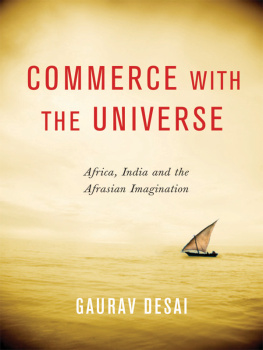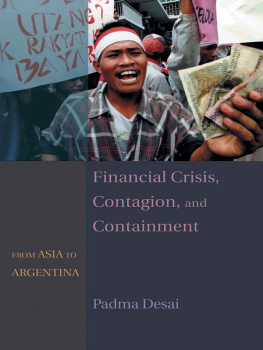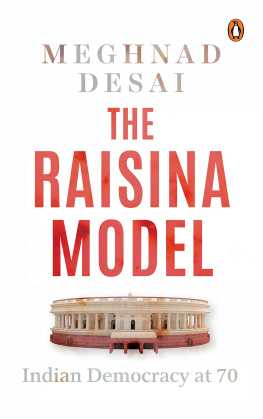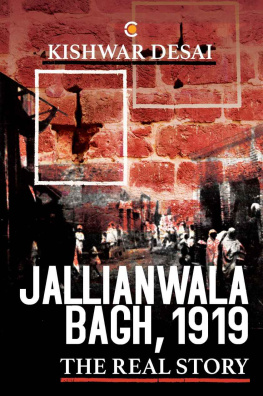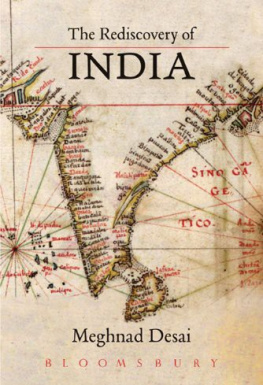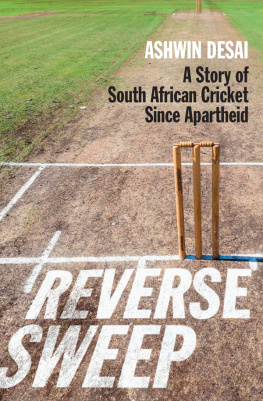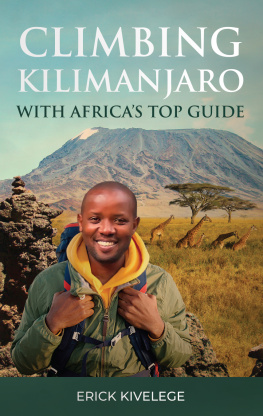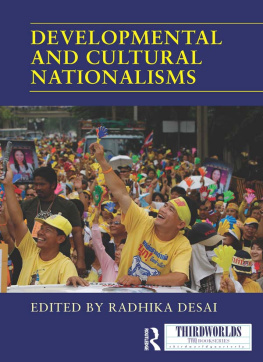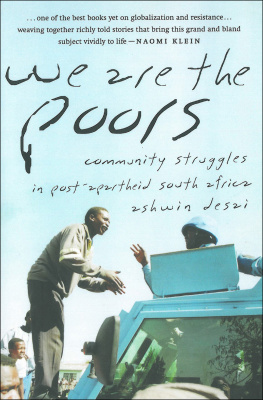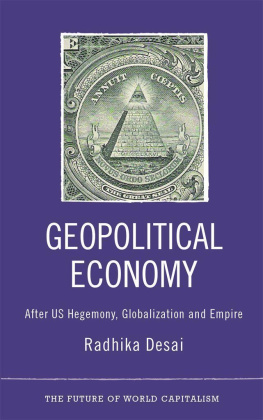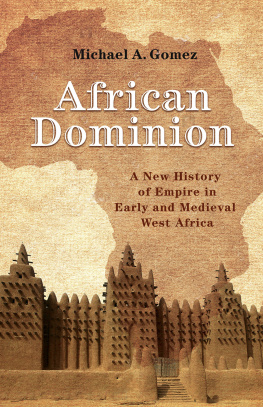Commerce with the Universe
Commerce with the Universe
AFRICA, INDIA, AND THE AFRASIAN IMAGINATION
Gaurav Desai
COLUMBIA UNIVERSITY PRESS
NEW YORK
Columbia University Press
Publishers Since 1893
New York Chichester, West Sussex
cup.columbia.edu
Copyright 2013 Columbia University Press
All rights reserved
E-ISBN 978-0-231-53559-5
Library of Congress Cataloging-in-Publication Data
Desai, Gaurav Gajanan.
Commerce with the universe: Africa, India, and the Afrasian imagination / Gaurav Desai.
pages cm
Includes bibliographical references and index.
ISBN 978-0-231-16454-2 (cloth: acid-free paper)ISBN 978-0-231-53559-5 (e-book)
1. Indic literatureHistory and criticism. 2. National characteristics, East
Indian, in literature. 3. East African literature (English)History and criticism.
4. East IndiansAfrica, East. I. Title.
PK2905.D55 2013
891.1dc23
A Columbia University Press E-book.
CUP would be pleased to hear about your reading experience with this e-book at .
Jacket Design: Noah Arlow
References to websites (URLs) were accurate at the time of writing. Neither the author nor Columbia University Press is responsible for URLs that may have expired or changed since the manuscript was prepared.
For Supriya
We must treat the Indian Ocean as the link it can be, not the barrier that others would like it to be!
JULIUS NYERERE, Freedom and Development
Business never dies in Africa; it is only interrupted.
NAZRUDDIN, IN V. S. NAIPAUL, A Bend in the River
CONTENTS
If Subject to Colonialism: African Self-fashioning and the Colonial Library was my tenure book, Commerce with the Universe has ended up being my ten-year one. I began thinking and writing it in earnest in the academic year 20012002 when I was fortunate to have a National Endowment for the Humanities fellowship at the National Humanities Center in Research Triangle Park, North Carolina. There, in the immediate aftermath of the 9/11 attacks, I took refuge in the comfort offered by the more tolerant and cosmopolitan world of the twelfth-century Levant, historically and imaginatively conjured by S. D. Goitein and Amitav Ghosh. I completed the bulk of the work on the manuscript as well at the National Humanities Center, this time in 20092010, under the auspices of a Frederick Burkhardt Fellowship awarded by the American Council of Learned Societies. Without those two years at the National Humanities Center, and without the tireless and cheerful help of everyone there, this book would still be in the making. In the intervening years I received support from a number of institutions, to all of which I am tremendously grateful. My home institution, Tulane University, provided support through a number of grants for research and travel, including the Center for Scholars Grant, the School of Liberal Arts George Lurcy Funds for Research, the School of Liberal Arts Publication Subvention Fund, the Tulane University Research Enhancement Grant, the Provosts International Travel Fund, the Newcomb Fellows Grant, the Duren Professorship Program, and the Department of English 4+1 Fund. In May 2003 the Rockefeller Foundation awarded me a residency at its magnificent villa in Bellagio, and, if memory serves me right, I did manage to do some writing in between the distractions of the surroundings and the delicious gelato. More recently, I spent a month at a similar residency in Mojarca, Spain at the Valparaiso Foundation, and this allowed me to take a broader look at the project. In 2004 I benefited from a Visiting Fellowship at Clare Hall, Cambridge University, which was seminal in allowing access to the collections of the Royal Commonwealth Society housed at the universitys library. Finally, an unplanned stay in Austin while evacuating from Hurricane Katrina during the Fall of 2005 resulted in very generous hospitality on the part of the English Department at the University of Texas and from the Harry Ransom Research Center, which offered me a travel grant to the collection.
In addition to such direct support from funding bodies, I have also benefited from collaborative work with colleagues in dialogue with whom many of the ideas in this book have been shaped. Here I would note two particularly important seminars that I took part in both in the summer of 2003. The first was a Faculty Development Seminar on Postcolonial Theory and the Globalization of Culture that I was asked to direct by the National Humanities Center with sponsorship from the DuPont Foundation. The second was an NEH institute that I attended as a participant at the East-West Center in Honolulu, Hawaii entitled Re-Imagining Indigenous Cultures: The Pacific Islands. In each case the vibrancy and energy of the discussions in those seminars have remained with me over the years and have informed not only this book, but other side projects. Likewise, the collaborative ethic between contributors and the intellectual to and fro associated with editorial projects means that it would be remiss of me not to acknowledge the mark made on my thinking by all of the contributors to collections and special issues of journals that I have edited. In the context of Commerce with the Universe, I particularly thank those who contributed to my MLA volume on Teaching the African Novel and the special issue of Research in African Literatures on Asian-African Literatures.
have appeared in the journals Representations, PMLA, and Research in African Literatures, and I am grateful to the editors and publishers for allowing them to be published here in revised form. I also thank my editor Philip Leventhal and the entire team at Columbia University Press for making the publication process such a pleasant one.
In the ten or so years over which I have written this book, I have made so many friends and incurred so many intellectual and personal debts that to list them all would be unseemly. At Tulane it would mean reproducing almost verbatim the faculty rosters of not only the Department of English and the Program of African and African Diaspora Studies but also of many others across the School of Liberal Arts. Nonetheless, Id like to especially thank Elisabeth McMahon and Adeline Masquelier not only for their feedback on the introductory chapter but also for Africa-related discussions in general. Outside of Tulane the numbers are also large, and so for the sake of brevity I note only a few such friends and colleagues with whom I have had conversations on an ongoing basis: Susan Andrade, Srinivas Aravamudan, Ian Baucom, Ali Behdad, Rey Chow, Eleni Coundouriotis, Elizabeth DeLoughrey, Simon Gikandi, Geoffrey Harpham, Wail Hassan, John Hawley, Kevin Hickey, Abiola Irele, Eileen Julien, Mohamed Kamara, Prafulla Kar, Kwaku Korang, Amitava Kumar, Francoise Lionnet, Emad Mirmotahari, Pramod Mishra, Renu Modi, David Chioni Moore, V. Y. Mudimbe, Tejumola Olaniyan, Mala Pandurang, Charles Piot, R. Radhakrishnan, Rajeswari Sunder Rajan, Pallavi Rastogi, Sangeeta Ray, Stephane Robolin, S. Shankar, Joseph Slaughter, Barbara Herrnstein Smith, Faith Smith, and Jennifer Wenzel. They should not, of course, be held accountable by association for any of the claims I make.

